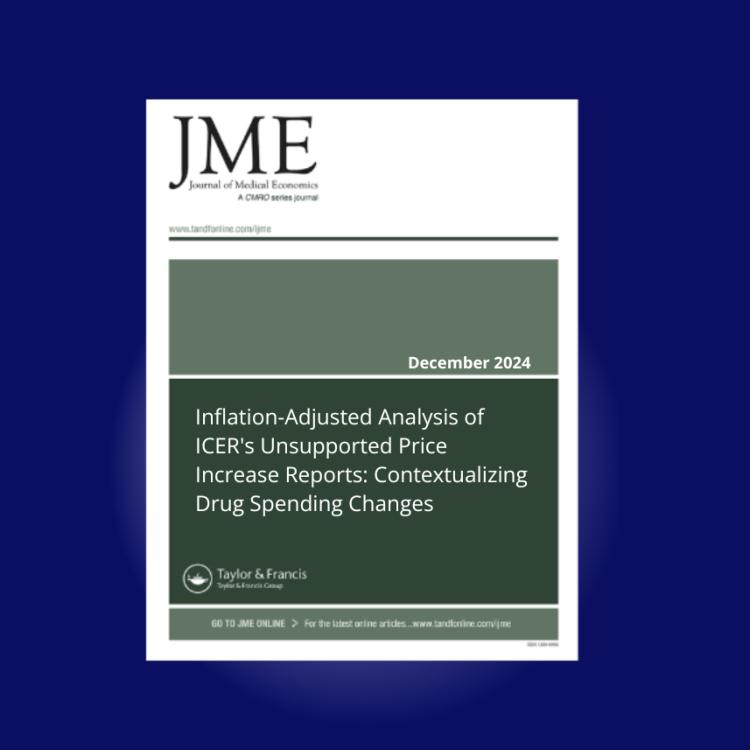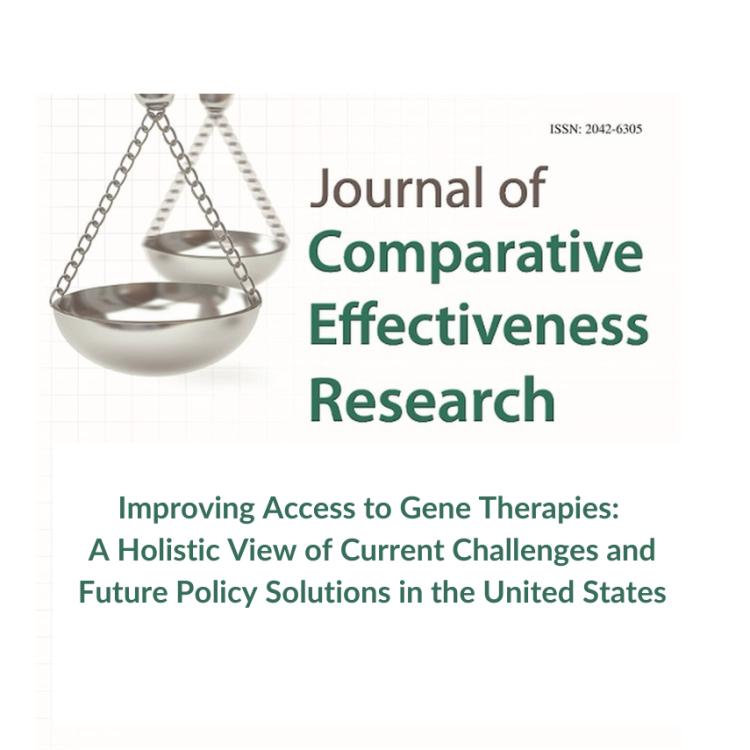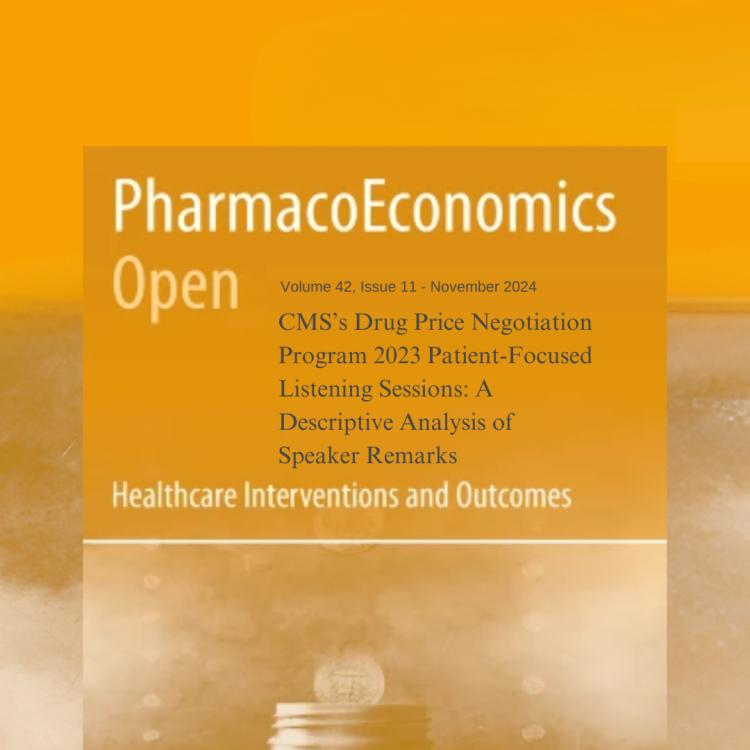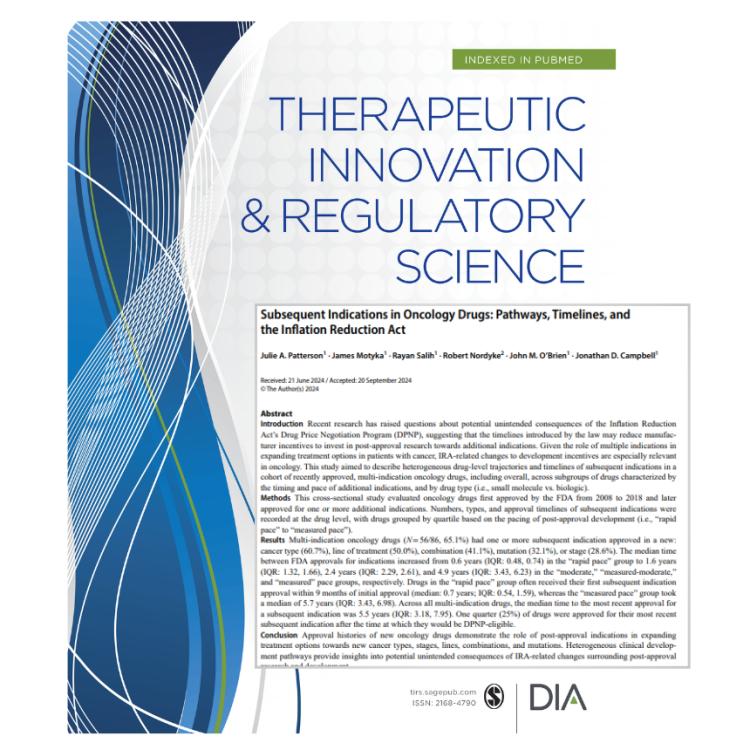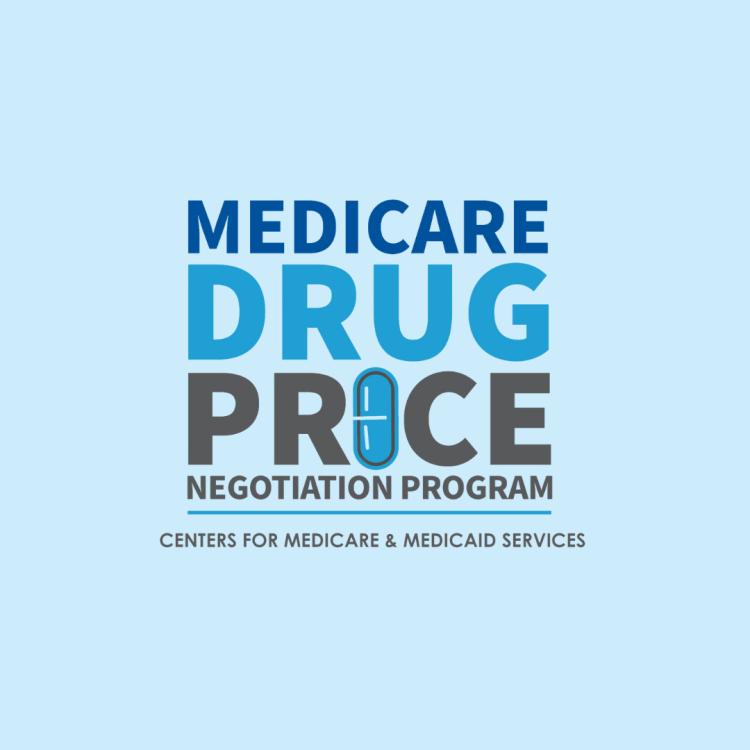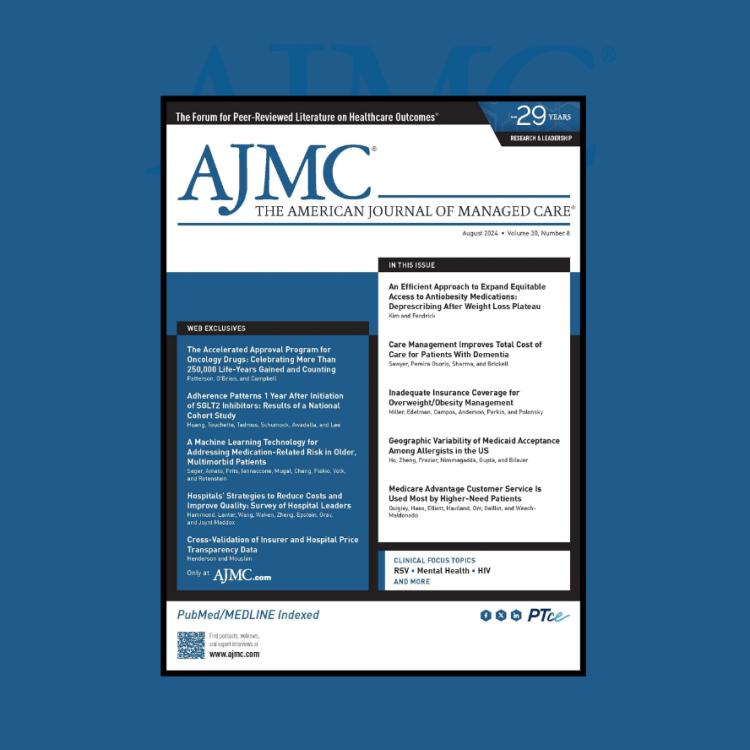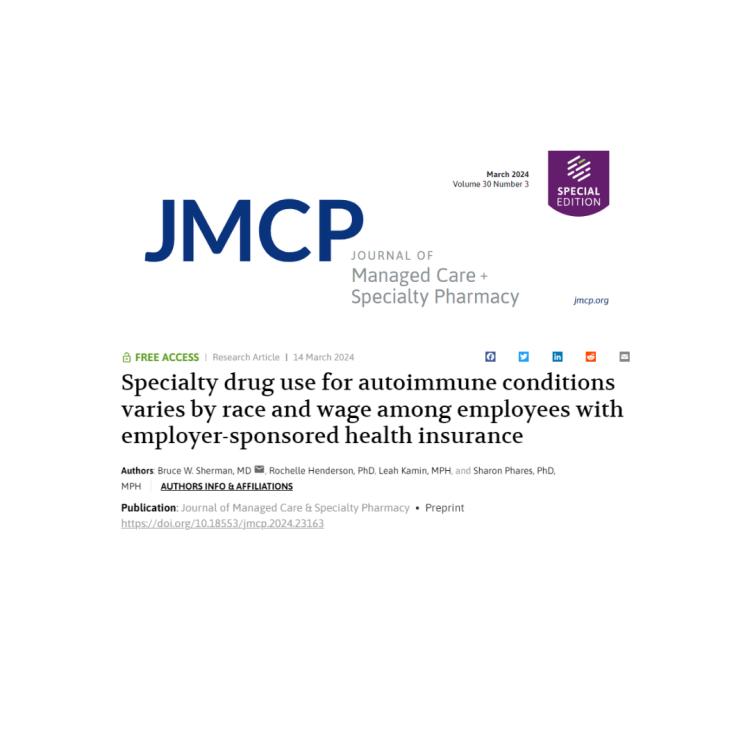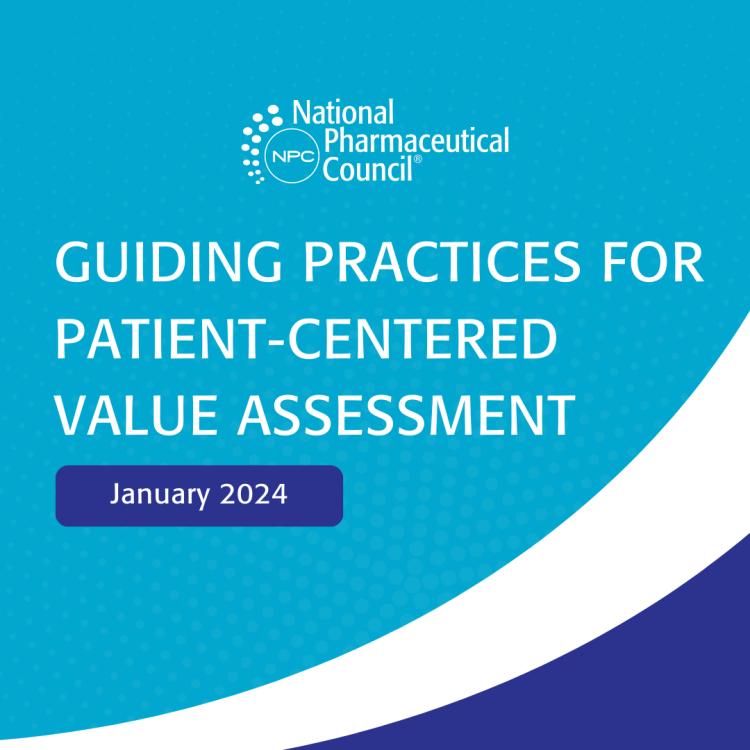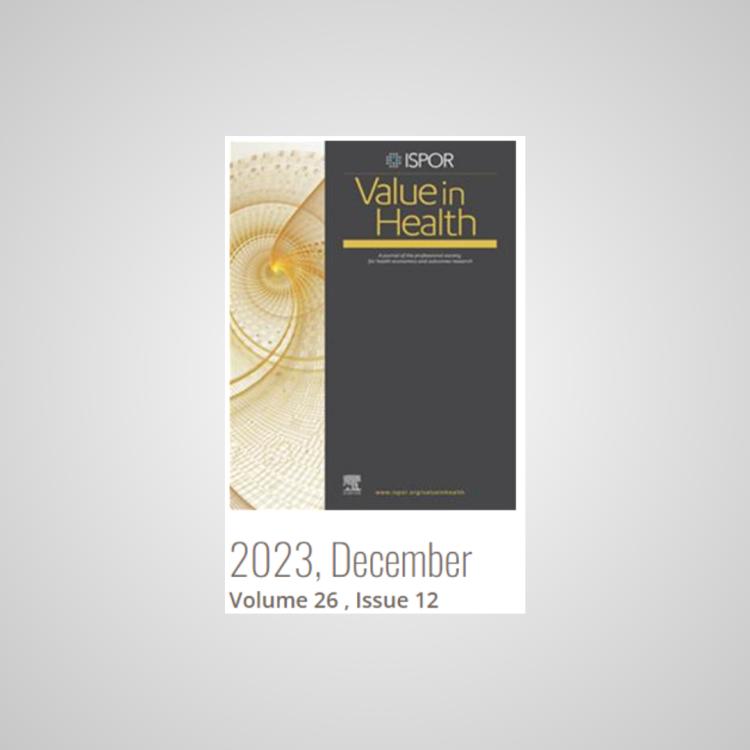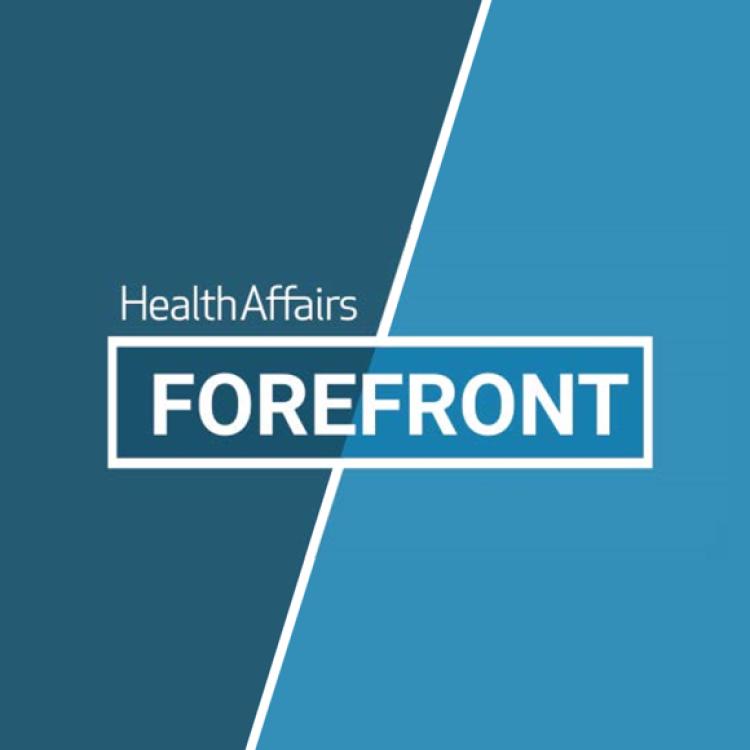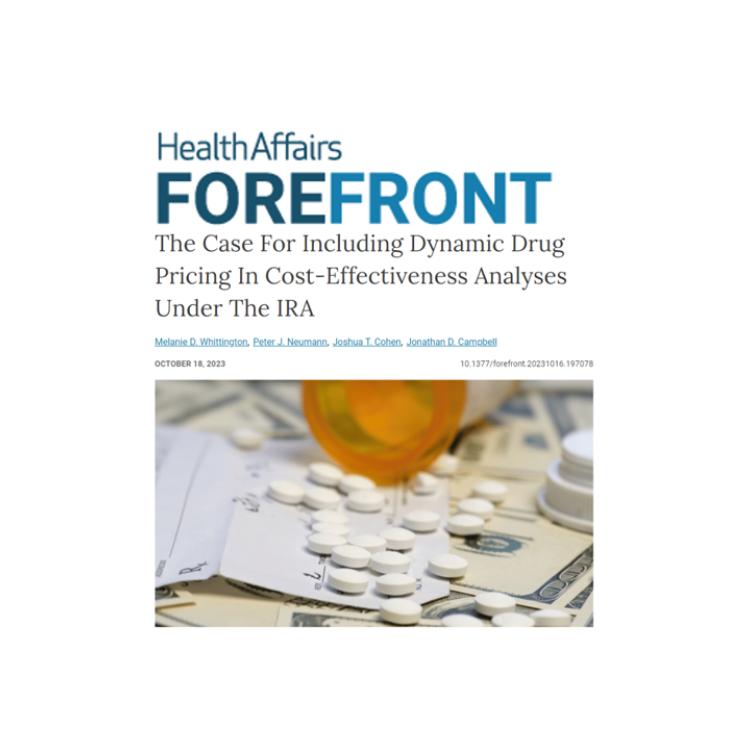Resources
The National Pharmaceutical Council (NPC) is a health policy research organization dedicated to the advancement of good evidence and science, and to fostering an environment in the United States that supports medical innovation.
Filter by:
Topic
Topic
- Biopharmaceutical Innovation
- Elements of Value
- Evidence for Decision Making
- Formulary/Benefit Design
- Health Spending
- High-Deductible Health Plans
- IRA Implementation
- Paying for Cures
- Pharmacy Benefit Managers (PBMs)
- Policy & Regulatory Barriers
- Utilization Management & Step Therapy
- Value Assessment
- Value Assessment Frameworks
- Value Assessment Methods
Resource Type
Audience
Audience
Display Only
Showing 148 Results
ICER Analyses of “Unsupported” Drug Price Increases Misrepresent Spending Changes by Failing to Adjust for Inflation
A new study from the National Pharmaceutical Council finds that incorporating inflation adjustments would have substantially changed the findings ICER published in its most recent reports.
Lessons from a Quantitative Analysis of the First Round of CMS Patient Listening Sessions for IRA’s Medicare DPNP
A new NPC publication in PharmacoEconomics – Open details learnings to help CMS improve the format and speaker representativeness of future patient-focused listening sessions.
Study Finds ICER’s Shared Saving Methods Reduce Incentives for Rare, Severe, and Pediatric Disease Treatment Innovation
New research published in Value in Health in collaboration with the National Pharmaceutical Council confirms the use of “shared saving” methods will diminish innovation incentives in areas of high…
The IRA May Have Unintended Consequences on Subsequent Indications of Oncology Drugs (New Research)
A new publication in Therapeutic Innovation & Regulatory Science examines drug-level trajectories toward subsequent indications in oncology and the way the IRA's Drug Price Negotiation…
Analyzing Accelerated Approval for Oncology Drugs: NPC Commentary Evaluates Evidence on FDA Program Effectiveness, Concludes Benefits Outweigh Risks
A new publication in AJMC examines evidence regarding the clinical benefit of the FDA’s Accelerated Approval Program and finds it is working for patients
New Study Sheds Light on Rebate Guarantees and the Role of Employer Benefits Consultants and Brokers in PBM Selection
NPC research published in the American Journal of Managed Care underscores the role employer benefits consultants may play in perpetuating employer reliance on guaranteed rebate arrangements.
New Primer Highlights Unanswered Questions and Unintended Consequences of State Prescription Drug Affordability Boards
Four states have given these boards authority to set drug prices. A new Health Affairs Forefront publication highlights the uncertainties, challenges, and unintended consequences for patients amid…
New Research Demonstrates Disproportionate Access to Specialty Drugs by Wage and Race
A review of employer-sponsored health plan data found that non-white and low-wage workers may struggle to access specialty medicines for autoimmune diseases.
New Research Finds Patient Access to Drugs Selected for IRA Is Often High (JAMA Health Forum)
A review of Medicare Part D coverage for 10 drugs in the Medicare Drug Price Negotiation Program raises concerns about how program implementation may impact patient access.
NPC Releases Updated Guiding Practices to Improve Patient-Centricity in Value Assessments
The Guiding Practices include 33 specific recommendations to ensure value assessments account for the full value pharmaceuticals provide to patients and society
Global Experts Highlight Concerns With Implementation of IRA-Mandated Medicare Drug Price Negotiation Program
Value in Health highlights commentary contributed by NPC's John O'Brien and NPC board member Jan E. Hansen on the implications of the Medicare Drug Price Negotiation Program.
New Analysis Shows IRA May Lead to Delayed Launches, Fewer Subsequent Indications, and Less Evidence Generation
NPC writes in Health Affairs Forefront about the unintended consequences of the IRA and the impact of the changing economic incentives for clinical development programs.
Why It Is Critical to Include Dynamic Drug Pricing in Cost-Effectiveness Analysis in a Post-IRA World
The drug price-related provisions of the Inflation Reduction Act make the case for including dynamic drug pricing in cost-effectiveness analysis even more compelling.
